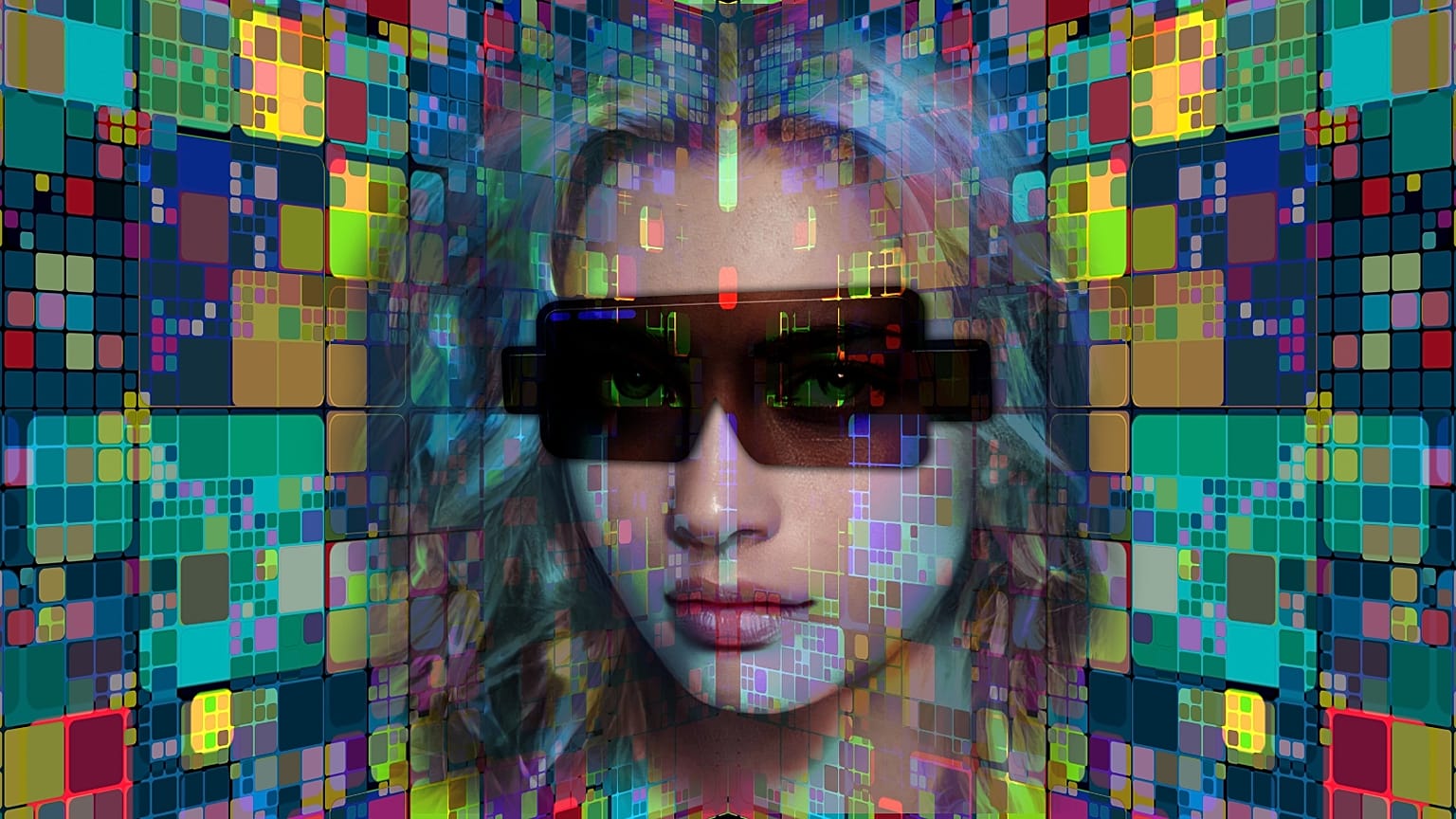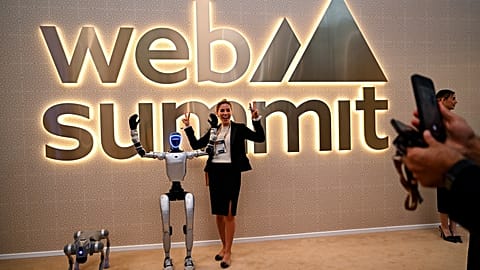The advertising industry is at a crossroads of creativity, as our physical world increasingly meets virtual ones.
A few years ago, it was big data, but now it’s artificial intelligence (AI) and the metaverse on the minds of many creatives.
But are they friends or foes, as brands battle to engage consumers through original and personalised content?
"I do believe AI will make everything a little bit better," Raphaël de Andréis, Chairman and CEO of Havas Village France, told Euronews Next at the Cannes Lions International Festival of Creativity.
"But our duty as an agency, as a creative agency, is to find amazing ideas that AI cannot find itself. I think it may kill some agencies… But agencies that are strong enough, who are courageous enough to go to the next level, I think it's a great chance. But it's a challenge".
Almost two-thirds of respondents in the State of Creativity Study 2023, released by Cannes Lions, cited AI as the most important tech trend this year.
Other research shows that by 2025, 30 per cent of all outbound marketing messages from large brands will be from generative AI, which can create text, images or other media content by responding to prompts.
The perils of over-regulation
Regulators are playing catch up to the increased deployment of the technology, with European lawmakers signing off earlier this month on the world’s first set of comprehensive rules for its use.
"The chance for Europe at this moment is AI is a little bit like a blank sheet in terms of tech. We have a great card to play, but if we are stuck, too much stuck into regulation, Europe won't have its fair share of new opportunities," warned de Andréis.
A hybrid world?
The metaverse, which has long promised to take us into a new reality, presents all sorts of new opportunities for advertisers, marketers, and the media. But there’s a growing feeling that it is not living up to all the hype.
That has not stopped some brands from trying it out, including in the travel and tourism business, where there is a hunger to create new, stand-out guest experiences and a hyper-personalisation of services.
"The metaverse is a complicated question. I honestly, I think that it's not yet what we thought it would be a year ago," said de Andréis.
"But I do believe in a hybrid model, and I think the virtual images in the real world, will be a key change in our industry. But the metaverse as a closed world, 100 per cent virtual, is not very obvious to me".
The 'Tinderisation' effect
As virtual tech increasingly takes on the physical, the evolving environment is likened by de Andréis as being like the dating platform Tinder.
"I think the world is in a mood of 'Tinderisation,' which is things that start virtually and end up in real life or start in real life and then end up virtually. It's no longer two worlds that live apart, one from the other," said de Andréis.
"I think tech could leverage human relationships and human relationships could easily be leveraged by new tech solutions and applications".
Being transparent with consumers
This year's Cannes Lions event welcomed its first virtual influencer to the stage, in the form of 'Rae,' an online hit from Asia. Taking on real-life influencers, who some would say have lost their way of late, some brands are gambling on their virtual rivals.
But will consumers warm to computer-generated characters in the long run? Particularly as developing AI could make it even more difficult for them to spot what’s real and what’s fake in the future.
"I do believe that the more complicated, the more blurry the world of communication and media is, the clearer we need to be on the contract that we sign with the audience. So, who are you, are you real, are you virtual, what is your expertise, where does your data come from," stressed de Andréis.
"As long as you fulfil all these criteria, I do believe there is a great space for virtual whatever, but you have to know they are virtual," he added.
For more from this interview at the 2023 Cannes Lions Festival of Creativity, watch the video in the media player above.


















